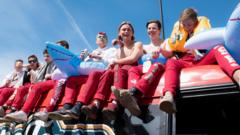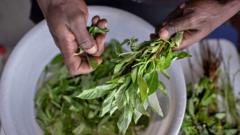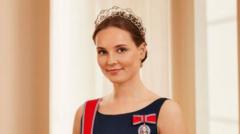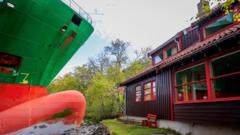Russebuss celebrations in Norway, a rite of passage for graduating students, are being criticized for escalating peer pressure, excessive partying, and potential safety hazards. Amidst declining exam results and rising concerns among parents, the government plans significant changes to the tradition.
Norway's Russebuss Tradition Faces Backlash as Party Culture Concerns Grow

Norway's Russebuss Tradition Faces Backlash as Party Culture Concerns Grow
The festive party bus culture among Norwegian school-leavers is under scrutiny as both parents and politicians voice concerns over its impact on wellbeing and educational performance.
As Norway's school-leavers gear up for their graduation celebrations, the distinct tradition of the russebuss — party buses adorned with vibrant colors — comes under fire. Known as 'russe,' these students typically don red overalls and celebrate their upcoming graduation in a lively manner leading up to Norway's National Day on May 17. However, this year's students, like Selma Jenvin-Steinsvag and Aksel, have begun their festivities weeks before their examinations conclude, prompting critiques from a concerned public.
The celebration has increasingly veered into excessive territory, with many students including 19-year-old Edvard Aanestad sharing the thrill of partying on the russebuss every night. These vibrant revelries have raised alarms over adverse effects on mental health, academic performance, and financial strain, as many students plunge into debt to afford the celebratory expenses associated with the bus rentals and luxury decorations.
Norwegian Prime Minister Jonas Gahr Støre reflected on former festivities but admitted that the modern interpretations of the russebuss have spiraled beyond control. Parents, such as Solveig Haukenes Aase, express fears that peer pressure and a sense of exclusion have seeped into younger teenagers due to the highly commercialized and costly celebration trend.
Education Minister Kari Nessa Nordtun cited strong links between the festivities and declining academic performance, calling for a re-evaluation of the timing and structure of these celebrations. Plans are underway to move the celebrations post-exams to foster a more inclusive environment.
Historically rooted since the early 1980s in Oslo, the monnaie of the russebuss has evolved over time, with elite schools often spending upwards of 3m krone (£220,000) on their bespoke buses, leading to concerns regarding affordability and access for all students. Despite the backlash, students like Edvard reject the proposed reforms, believing they will exacerbate feelings of exclusion rather than alleviate them.
In addition to the cultural concerns surrounding the party atmosphere, Norwegian authorities have also spotlighted safety issues, particularly regarding bus designs that may pose risks during raucous night parties. Current plans seek to mitigate these hazards for future graduating classes.
The evolving narrative around the russebuss suggests a need for a critical examination of traditions in the light of modern-day realities facing Norwegian youth.

















